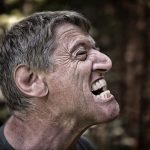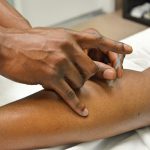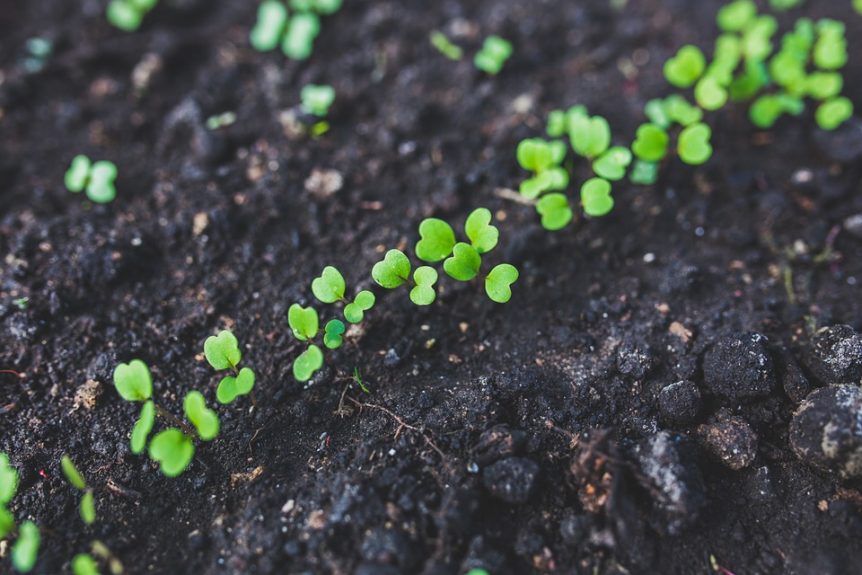Trauma Training Tip
Spring is a season of dramatic movement – bulbs and seeds lying quietly under the soil emerge quickly and colorfully – carrying metaphors of new possibilities, fresh starts, and manifestation of potential.
 The Taoist sages found resonance in these qualities of Spring and named the season for the Wood Element and the Liver and the Gall Bladder as its organs. Our benevolent Wood Element is always available to protect and defend us – and those we love.
The Taoist sages found resonance in these qualities of Spring and named the season for the Wood Element and the Liver and the Gall Bladder as its organs. Our benevolent Wood Element is always available to protect and defend us – and those we love.
The Wood Element mirrors the function of the sympathetic branch of the autonomic nervous system. Acupuncture and Asian Medicine (AAM) names its functions to support us to orient to challenges or threats, strategize solutions, mobilize necessary resources, and implement an action of fight or flight that is commensurate with the level of threat.
The spirit of the Liver, called the Hun or Spiritual Soul, rests in the blood – and can be profoundly compromised in trauma survivors. The Hun supports our memory and consciousness, decision-making, ability to make plans for our future, and our spirit to rest into peaceful sleep.
During the day, Liver Blood empowers muscles and promotes flexibility in the sinews and joints. In the face of threat, this function helps us to mount a fight or flight response that is both effective and commensurate with the level of threat we are experiencing.
When we experience a life-threat, our Heart communicates a command to every organ, cell, and function of the body to protect and defend our very existence. The blood carries the intensity of the Heart’s command. The Liver’s job is to “restore” balance and regulation, equanimity, and ease to the blood while we sleep in the night. This restorative function can be compromised if the Liver Qi is not functioning well, or if there is an overwhelmingly dysregulated vibration carried in the blood.
 If your client is struggling with memory and consciousness, dream-disturbed sleep, a lack of hope or capacity to conceive their way forward, or brittleness in their sinews or their emotions – you may way want to pay particular attention to their blood. A diet rich in beef or lamb, red grapes, and beets will help restore the blood. There are many formulas in both AAM and Western Herbology that can support the quantity and quality of the blood.
If your client is struggling with memory and consciousness, dream-disturbed sleep, a lack of hope or capacity to conceive their way forward, or brittleness in their sinews or their emotions – you may way want to pay particular attention to their blood. A diet rich in beef or lamb, red grapes, and beets will help restore the blood. There are many formulas in both AAM and Western Herbology that can support the quantity and quality of the blood.
You also may find that resting your hand gently over the right rib-cage and bringing your attention to the “juiciness” in the liver may support regulation in this critical organ and its oversight over the important functions of blood.
Alaine’s Two Cents
The sympathetic nervous system has no social intelligence. It requires a braking relationship with the parasympathetic nervous system for anything other than fight or flight to manifest. In particular, it requires the ventral vagal system – represented in Acupuncture and Asian Medicine by the Heart and the Heart’s spirit, the Shen – for actions to be taken that reflect awareness of their impact on other people, sensitivity to cultural differences, and thoughtful, non-violent, consideration of people, places, and things to be included in our choices.
In the face of unmitigated sympathetic arousal, our task as healers is to support survivors to complete their previously thwarted mobilization responses so they are no longer unconsciously commanded to act-out their incomplete responses.
 People who commit hate crimes, mass shootings, domestic violence, or child abuse are operating without a ventral vagal brake on their sympathetic arousal. Their good and noble urge to protect and defend has turned into its opposite and become violent and abusive.
People who commit hate crimes, mass shootings, domestic violence, or child abuse are operating without a ventral vagal brake on their sympathetic arousal. Their good and noble urge to protect and defend has turned into its opposite and become violent and abusive.
This is how a survivor of abuse becomes a perpetrator of violence.
We can help people cultivate their ventral vagus as they create relationships across differences, cultivate experiences of safety, and opportunities to recognize and own their anxiety and move it out gently, rather than react to it with unfortunate and sometimes life-threatening outcomes.
Check This Out!
This article makes critical distinctions between “Trauma-Informed Care” and “Healing Centered Engagement.” Shawn Ginwright draws out the importance of the social, cultural, environmental, and political context of traumatic stress – and the importance of seeing people as whole people, with many threads in their tapestry. He makes how we understand traumatic stress richer, more nuanced, and so much clearer. A great read.
Clinical Curiosity
Q. I’m working with someone who has a recurrent entry-exit block between their Spleen and Heart meridians. Although it clears with treatment, it invariably returns. This woman appears emotionally “flat”, and is virtually absent in her emotional expression – I would say she is quite Shen Deficient.
A. It is not uncommon for trauma survivors to have unpredictable treatment outcomes. Their physiology has been so deeply disturbed that it doesn’t appear or respond as you would expect it to.
Your diagnosis of Shen or Heart Spirit Deficiency is particularly interesting to me. I believe a Western-trained mental health provider might describe her as “dissociated,” “frozen,” or “collapsed.” These terms reflect the phenomenon of Qi/awareness leaving the body when something that is experienced as life-threatening occurs.
 It is a helpful mode to conserve energy that keeps us alive until help can arrive. However, if it becomes habituated, it can cause profound functional deficiencies – and be very challenging to an acupuncturist’s needles! Qi/awareness has been profoundly diminished – there is limited tone in the tissues to carry the impulse of the needle.
It is a helpful mode to conserve energy that keeps us alive until help can arrive. However, if it becomes habituated, it can cause profound functional deficiencies – and be very challenging to an acupuncturist’s needles! Qi/awareness has been profoundly diminished – there is limited tone in the tissues to carry the impulse of the needle.
Acupuncturists will need to use their presence, their voice, or their hands to help restore a sense of safety and bring the Qi back “home” to the tissues in order for their needles to have their desired effect. In other words – your diagnosis and treatment plan can be clinically brilliant – and it will still not be effective without approaches to patient management that “prepare the field” before a needle is “planted.”

